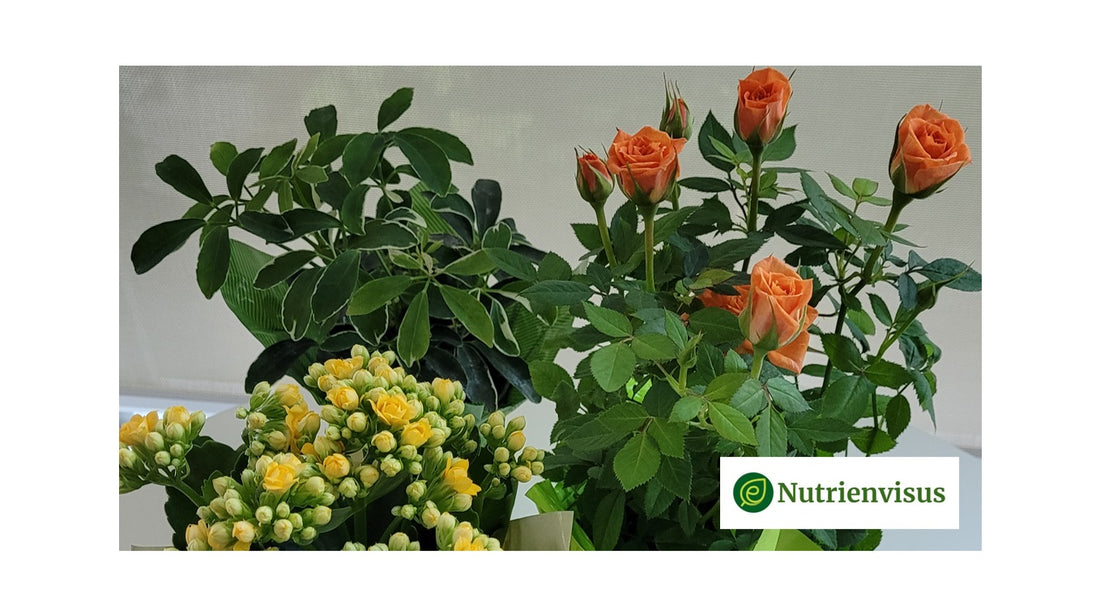If you are a commercial grower, a home gardener, or a plant enthusiast, you may be looking for ways to improve the growth attributes of your plants. Plant growth attributes are the inherent characteristics that determine a plant’s overall health, vitality, and resilience. The measurement of attributes would be plant size and height, number of flowers & fruits, quality of harvested products, nutritional ingredients (sugar, vitamin, volatile, aromatic compounds), and external characteristics (shape and colour). By understanding and harnessing these attributes, you can elevate your crop production to new heights.
Plant growth is a fascinating process influenced by a variety of factors, but it can be classified into two categories: (1) internal/genetic factors and (2) external/environmental factors.
1. Internal (Genetic) factors
Genetic factors determine the plant's growth rate, size, and overall appearance (phenotypic). Each plant species has a unique genetic makeup that influences how it grows. Growers can select the best varieties for their specific needs by understanding plant phenotypic and genetic background. No doubt that plant varieties, including newly developed varieties, crop varieties, modern cultivars, and wild forms, are valuable resources for plant breeders. Currently, there are numerous genetic improvements available for agricultural crops that growers can choose and use to increase production and expand their product line. For examples:
- Growers can grow a diverse range of chrysanthemum with different colours and sizes.
- Growers can cultivate various basils with different leaf colours, sizes, flavours, and aromas.
2. External (Environmental) factors
Environmental factors can improve plant attributes, which we classified into two categories: (1) abiotic factors and (2) biotic factors. Abiotic factors are non-living components such as climatic factors (light, temperature, aeration, humidity, and moisture), and growth media (soil/non soil, water. pH, salinity, and plant nutrients in growth media) that influence plant growth and health. Biotic factors include living components such as microbes, insects, and animals. The positive impact on plant growth and health can be achieved by optimizing both abiotic and biotic factors. For examples:
- Plants are hampered by a lack of beneficial microbes (probiotics) or an imbalanced microbiome in soil because plants are unable to use some of the nutrients added to the soil. Without biotic factors, these can prevent growers from achieving the desired results. Indoor production is significantly more controlled than outdoor production.
- Fruit productions are not maximized without pollinators such as: bees that can effectively transfer pollen in and between flowers of the same plant species.
Optimizing genetic and environmental factors will undoubtedly enhance productivity and success. It is essential to follow the instructions on how to take care those plants. Every plant has unique requirements of sunlight, water and fertilizer, and so on. Closely monitor the growth of your plants and make adjustments as needed. Observe any changes in colour, size, or overall health and take appropriate action.
Nutrienvisus has developed precision-formulated plant nutrients (Enviotin) and plant probiotics (Enviotics), which are key components of abiotic and biotic factors, respectively. Our products can support the growth of a wide variety of different crops, improve plant quality and yield, and reduce plant losses. Our Enviotics now can be purchased in large quantities for commercial grower, and growers can boost the growth attributes of their plants.
Do you have challenges in your crop production? If you would like to try our products to optimize environmental factors in your crop production, please email us: info@nutrienvisus.com.

